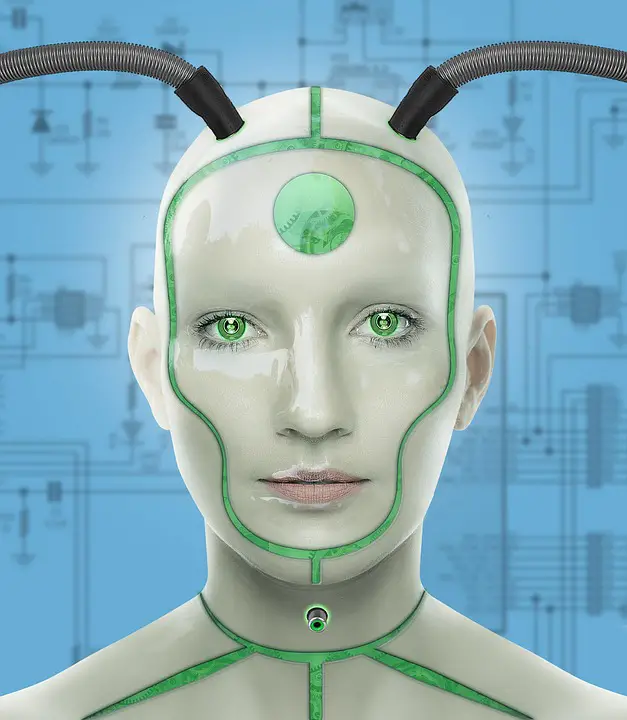Introduction
Artificial Intelligence (AI) has emerged as a transformative force in the business landscape, reshaping how organizations operate and compete. The integration of AI into business processes has led to increased efficiency, reduced costs, and enhanced decision-making capabilities. This report explores the role of AI in automating business processes, examining its applications, benefits, challenges, and financial implications.
Understanding AI and Automation
AI refers to the simulation of human intelligence in machines programmed to think and learn like humans. Automation, on the other hand, involves using technology to perform tasks without human intervention. When combined, AI and automation create intelligent systems capable of executing complex processes with minimal human oversight.
The Importance of Automating Business Processes
Automating business processes is crucial for several reasons:
1. **Efficiency**: Automation can significantly reduce the time taken to complete tasks, allowing employees to focus on strategic activities.
2. **Cost Reduction**: By minimizing manual labor and errors, businesses can lower operational costs.
3. **Consistency**: Automated processes ensure consistent output quality, reducing variability and enhancing customer satisfaction.
4. **Scalability**: Automation allows businesses to scale operations quickly without the need for proportional increases in workforce size.
Applications of AI in Business Process Automation
AI can be integrated into various business processes across different sectors. Some notable applications include:
Customer Service Automation
AI-powered chatbots and virtual assistants can handle customer inquiries, providing 24/7 support. According to a report by Gartner, by 2025, 75% of customer service interactions will be powered by AI. This reduces the need for human agents and allows for faster response times.
Supply Chain Management
AI can optimize supply chain operations through predictive analytics and demand forecasting. For instance, companies like Amazon use AI to analyze purchasing patterns, enabling them to manage inventory effectively and reduce holding costs.
Human Resource Management
AI-driven tools can streamline recruitment processes by automating resume screening and candidate assessments. A study by LinkedIn indicated that companies using AI in hiring processes can reduce recruitment time by 50%.
Finance and Accounting
AI can automate routine financial tasks such as invoicing, expense management, and fraud detection. According to a report by McKinsey, automation in finance can decrease operational costs by up to 20-30%.
Benefits of AI in Automating Business Processes
The adoption of AI in business process automation offers numerous benefits:
Increased Productivity
AI automates repetitive tasks, allowing employees to focus on higher-value activities. For example, companies that have implemented AI solutions report productivity gains of up to 40%.
Enhanced Data Analysis
AI can analyze vast amounts of data quickly, providing businesses with insights to make informed decisions. Businesses leveraging AI for data analysis can improve decision-making speed by 5 to 10 times.
Improved Customer Experience
AI enhances customer interactions by providing personalized experiences. Companies using AI for customer engagement have reported a 10-15% increase in customer satisfaction scores.
Financial Implications of AI Automation
The financial impact of implementing AI in business processes can be substantial. According to a report by PwC, the global economic impact of AI could reach $15.7 trillion by 2030. Here are some financial aspects to consider:
Cost Savings
Businesses adopting AI can achieve significant cost savings through automation. According to research by Accenture, AI could increase labor productivity by up to 40%, leading to substantial cost reductions.
Return on Investment (ROI)
Companies investing in AI technology can expect high returns. A survey by Deloitte found that 53% of businesses reported a positive ROI from their AI investments within the first year.
Challenges in Implementing AI Automation
Despite the numerous benefits, businesses face challenges in AI adoption:
Data Quality and Availability
The effectiveness of AI systems relies heavily on the quality and availability of data. Poor data can lead to inaccurate predictions and suboptimal decision-making.
Integration with Existing Systems
Integrating AI solutions with legacy systems can be complex and costly, requiring substantial investment and time.
Workforce Resistance
Employees may resist AI adoption due to fears of job displacement. Organizations need to manage change effectively by communicating the benefits of AI and reskilling employees for new roles.
Future Trends in AI and Business Process Automation
The future of AI in business process automation looks promising. Here are some trends to watch:
Increased Use of AI in Decision Making
AI is expected to play a more significant role in strategic decision-making, helping organizations anticipate market trends and make data-driven decisions.
Growth of AI-Powered Robotics
Robotic Process Automation (RPA) combined with AI will enable businesses to automate more complex tasks, enhancing operational efficiency.
Focus on Ethical AI
As AI adoption increases, organizations will need to prioritize ethical considerations, ensuring transparency and fairness in AI algorithms.
Conclusion
The role of AI in automating business processes is transformative, offering significant benefits such as increased efficiency, cost savings, and enhanced decision-making. While challenges exist, the financial implications and future trends indicate a strong potential for AI to reshape the business landscape. Organizations that embrace AI automation will likely gain a competitive edge in an increasingly digital economy.

